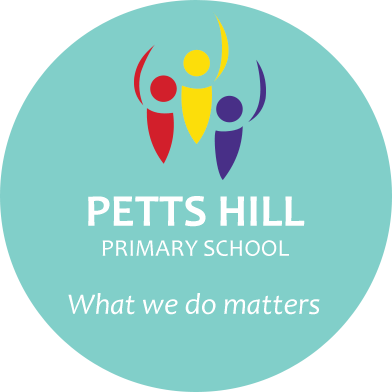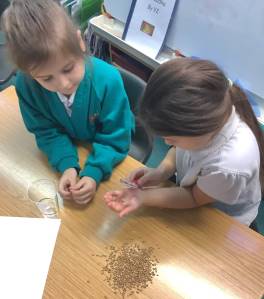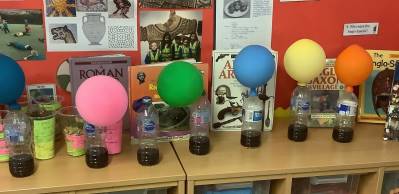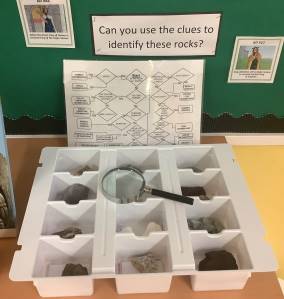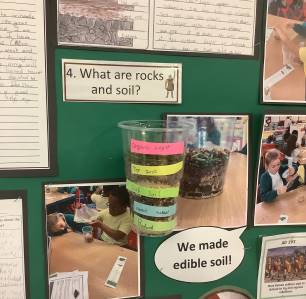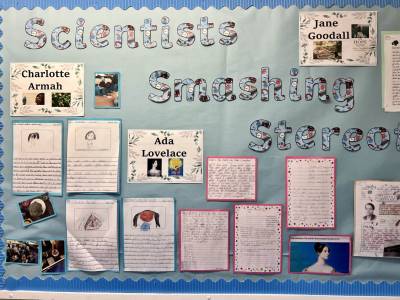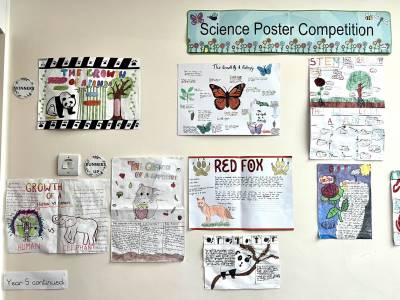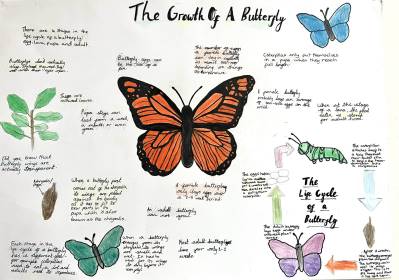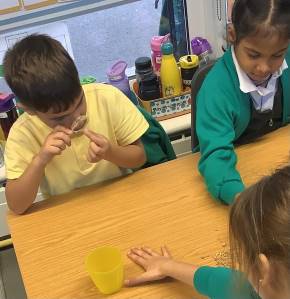Science
Science
Our ambition for every learner:
Science teaching at Petts Hill Primary School aims to give all children a strong understanding of the world around them whilst acquiring specific skills and knowledge to help them to think scientifically, to gain an understanding of scientific processes and also an understanding of the uses and implications of Science, today and for the future. It enables them to learn about the work of famous scientists and those that work in different fields. We aim to inspire children to broaden their horizons and see STEM (science, technology, engineering and maths) subjects as part of their future.
At Petts Hill Primary, scientific enquiry skills are embedded in each topic the children study and these topics are revisited and developed throughout their time at school. Topics, such as Plants, are taught in Key Stage One and studied again in further detail throughout Key Stage Two. This model allows children to build upon their prior knowledge and increases their enthusiasm for the topics whilst embedding this procedural knowledge into the long-term memory.
All children are encouraged to develop and use a range of skills including observations, planning and investigations, as well as being encouraged to question the world around them and become independent learners in exploring possible answers for their scientific based questions. Specialist vocabulary for topics is taught and built up, and effective questioning to communicate ideas is encouraged. Concepts taught should be reinforced by focusing on the key features of scientific enquiry, so that pupils learn to use a variety of approaches to answer relevant scientific questions.
What we do to achieve these ambitions:
The curriculum is planned as part of our bespoke curriculum for our school community. It includes:
- A knowledge organiser which outlines knowledge (including vocabulary, key diagrams, dates & people) all children must master
- A cycle of lessons for each subject, which carefully plans for progression and depth
- Many opportunities for hands on learning to support long term memory through first hand observations and sensory stimulus
- Many opportunities for children to make their own decisions and drawing their own conclusions using scientific vocabulary in full sentences and relevant terms
- Many opportunities for children to link their learning to the other curriculum areas in that term
- Many opportunities to read, write and practise maths through science
- Retrieval grids for every topic that are used regularly to support learners’ ability to recap key concepts and facts; increase space in the working memory and link what’s previously been taught and what comes next
- Challenge questions for pupils to apply their learning in a philosophical/open manner
- Trips and visits from experts who will enhance the learning experience.
How we measure our success:
Our Science Curriculum is high quality, well thought out and is planned to demonstrate progression. We measure the impact of our curriculum through the following methods:
- A reflection on standards achieved against the planned outcomes
- A celebration of learning for each term which demonstrates progression across the school;
- using retrieval grids to check long term memory application
- using knowledge organisers to check back on what the children have learned and how they recall and explain vocabulary, facts
- Pupil discussions about their learning using the learning journey boards and their books as visual aids
For more information on the programmes of study for Science click below:
